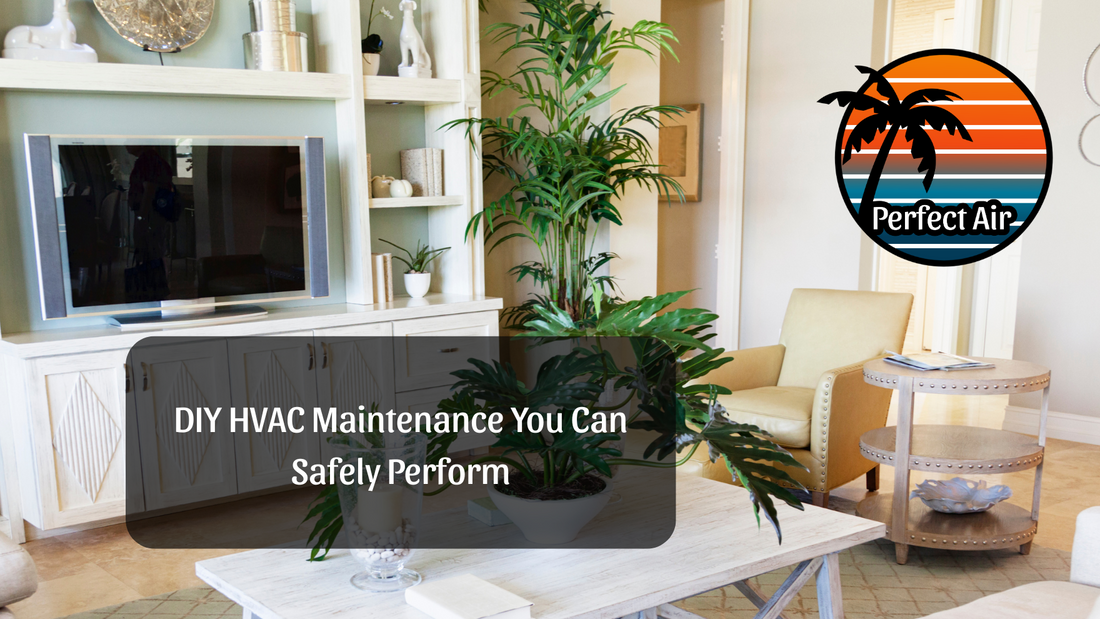
DIY HVAC Maintenance You Can Safely Perform
Share
Keeping your HVAC system running efficiently doesn’t always require a professional visit. While annual inspections from a licensed technician are essential, there are several safe, do-it-yourself HVAC maintenance tasks homeowners in Florida can handle on their own. By keeping up with these simple steps, you can improve your system’s performance, lower energy bills, and extend its lifespan.
1. Replace or Clean Air Filters Regularly
Dirty air filters are one of the most common reasons for poor HVAC performance. A clogged filter restricts airflow, forcing your system to work harder and use more energy.
- How often? In Florida’s humid climate, check your filters monthly and replace them every 1–3 months.
- Why it matters: Clean filters improve indoor air quality and reduce strain on your system, which can help prevent breakdowns.
2. Keep Your Outdoor Unit Clear
Your AC’s outdoor condenser unit needs plenty of airflow to work properly.
- Remove leaves, grass clippings, or debris around the unit.
- Trim back shrubs or plants at least two feet away.
- Gently rinse the unit with a garden hose to clear dirt from the fins.
Avoid using high-pressure sprays, as they can damage delicate coils.
3. Check and Clean Air Vents
Blocked or dirty vents reduce your HVAC’s efficiency. Walk through your home to make sure all vents are open and free from dust buildup. Vacuum them regularly and avoid placing furniture or rugs over vents.
4. Monitor Your Thermostat Settings
Smart usage goes a long way in lowering your bills. Consider:
- Setting your thermostat to 73°F-75°F when home and higher when away.
- Using a programmable or smart thermostat to automate cooling schedules.
- Avoiding drastic temperature swings, which strain your system.
5. Inspect the Condensate Drain Line
In Florida’s humid environment, your AC produces a lot of condensation. Over time, the drain line can clog with algae or debris, leading to water leaks or mold.
- Locate the drain line (usually a PVC pipe near the outdoor unit).
- Pour a cup of vinegar or warm water mixed with mild soap through it every few months to prevent buildup.
6. Listen and Look for Warning Signs
Strange noises, weak airflow, or warm air blowing from vents may signal a problem. If you notice anything unusual, call a professional before small issues turn into costly repairs.
What You Should Not DIY
Some HVAC tasks should always be left to trained technicians, such as:
- Refrigerant handling
- Electrical repairs
- Deep coil cleaning
- Ductwork inspections or sealing
Attempting these without proper training can damage your system or even pose safety risks.
Final Thoughts
Performing basic DIY HVAC maintenance keeps your system clean and efficient while saving you money on energy bills. Just remember: routine professional service is still key to keeping your system in peak condition—especially in Florida’s demanding climate.



